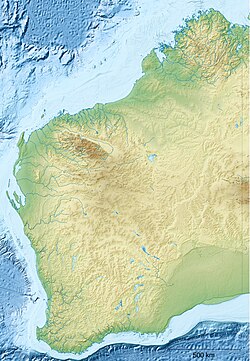| Katanning Mosque | |
|---|---|
| Religion | |
| Affiliation | Islam |
| Status | Active |
| Location | |
| Location | 18 Warren Road, Katanning, Western Australia |
| Country | Australia |
| Geographic coordinates | 33°40′53.7″S117°33′18.7″E / 33.681583°S 117.555194°E |
| Architecture | |
| Type | Mosque |
| Date established | 1980 |
| Specifications | |
| Dome(s) | One |
| Minaret(s) | Two |
The Katanning Mosque is a mosque in Katanning, Western Australia.
